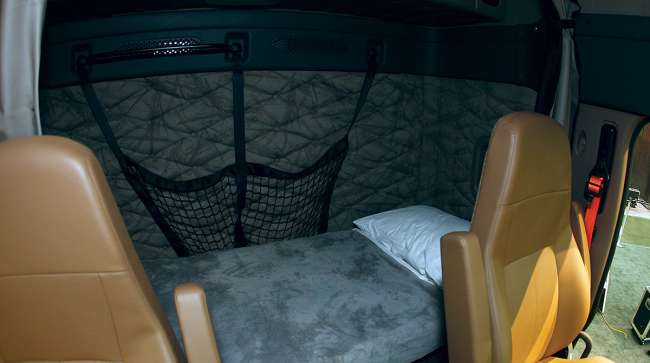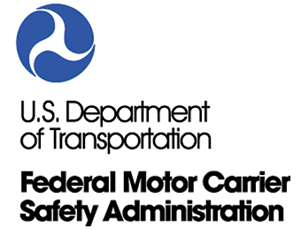Senior Reporter
Security-Sensitive Carrier PTS Worldwide Seeks Sleeper Berth Exemption

[Stay on top of transportation news: Get TTNews in your inbox.]
Security-sensitive motor carrier PTS Worldwide Inc. has asked the Federal Motor Carrier Safety Administration for an exemption from the hours-of-service requirement to allow its drivers to split their 10 hours of sleeper berth time into periods of 4-6, 5-5 or 6-4 hours.
PTS transports Department of Defense property, including ammunition and explosives, in interstate commerce, an Oct. 15 FMCSA pre-publication Federal Register announcement said.
PTS-2019-22502 by Transport Topics on Scribd
“For security reasons, this transportation requires a team of two drivers,” the announcement said. “PTS seeks by exemption to allow its team drivers to split the equivalent of 10 hours off duty into two sleeper berth periods, neither less than four hours long. This request is limited to team operations and is in no way a request to apply any such exemption to solo driver operations.”
Current hours-of-service requirements call for drivers to accumulate the equivalent of 10 consecutive hours off duty in two separate periods, one of at least eight but less than 10 consecutive hours in the sleeper berth, and another of at least two consecutive hours off- duty. However, a proposed rule would allow the split to be either 8-2 or 7-3 hours.
PTS said its team drivers travel more than 1,100 miles per 24 hours and average 60 hours on duty per week. After five weeks on the road, PTS drivers receive a week off-duty at home. PTS asserts that due to the nature of its business, the drivers would be more alert if allowed to take shorter rest periods in the sleeper berth.

The carrier said it believes that the shorter period would allow PTS drivers to obtain nighttime hours in the sleeper berth and thereby minimize driver fatigue.
“When the driver has obtained the two qualifying periods, the sleeper berth rule provides the driver more on-duty and driving time,” the announcement said.
PTS said that its vehicle and driver safety record is better than the national average and that it has one of the best safety, security and service records of all DOD arms and ammunition transporters.
In addition, all of the carrier’s power units are equipped, and any new power units will be equipped, with on-board electronic recorders to track driving and on-duty time. All power units are governed to 70 mph, the carrier said.
FMCSA said that PTS’ exemption application references a study concerning the effects on sleep that found sleeper berth flexibility to be a better choice than consolidated daytime sleep when consolidated nighttime sleep is not possible. The carrier also referenced additional studies that identified sleeper berth flexibility as a contributor to normalizing sleeping patterns and reducing fatigue, the announcement said.
Want more news? Listen to today's daily briefing:

